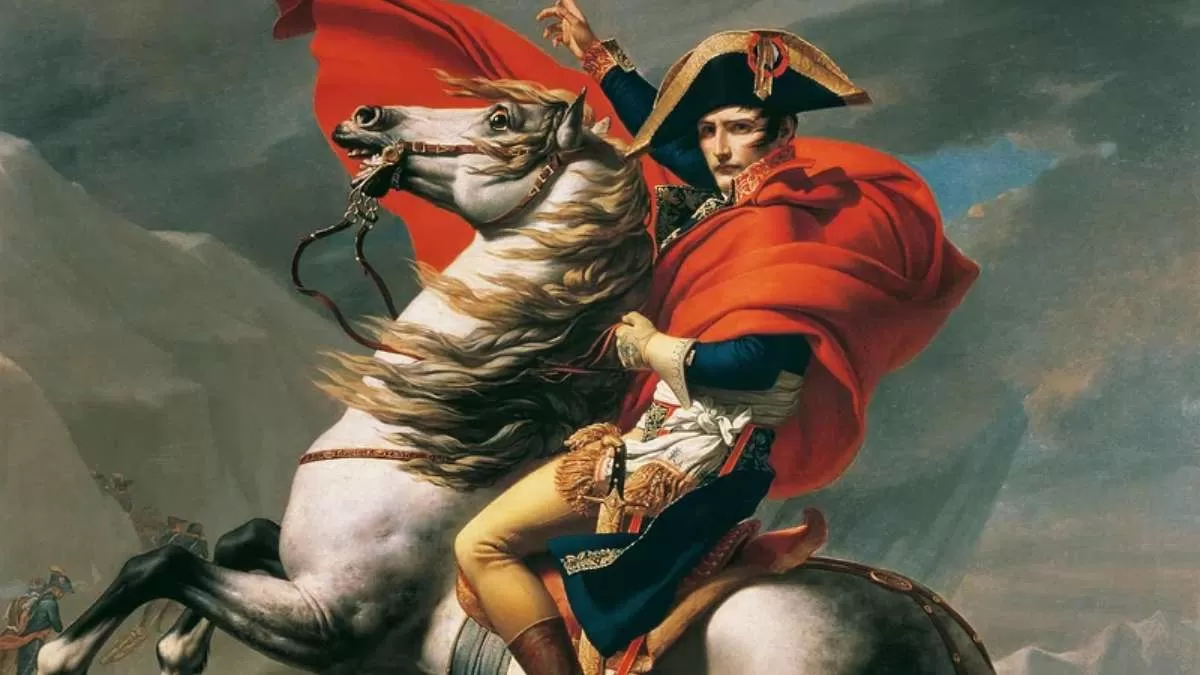« on: May 24, 2025, 08:03:24 AM »
Napoleon Bonaparte was a prominent figure who played a major role in shaping modern European history. Here is everything you need to know about him.

The French Revolution in the 18th century saw the downfall of the French monarchy and the ascension of a prominent figure who played a major role in shaping modern European history.
The abolishment of the monarchy and the subsequent execution of French King Louis XVI created a significant power vacuum in the politically and socially unstable France. During that period of time, fervent nationalism and militarism were on the rise and thus emerged Napoleon Bonaparte, one of the most influential and controversial figures in modern-day history.
Birth and Early Life
"Napoleone Buonaparte" was born on August 15, 1769 to Carlo Maria Bonaparte and Maria Letizia Ramolino in Ajaccio, Corsica, France. He was a brilliant and outspoken student.
At the age of 9, he transferred to a military academy at Brienne-le-Château on a scholarship. He was enrolled at the École Militaire in Paris after finishing his studies at Brienne in 1784 and was preparing to be an artillery officer.
However, because of unforeseen circumstances after the death of his father, he had to finish the two-year training in a single year.
Napoleon became the first Corsican to receive a diploma from the École Militaire.
After graduating, Napoleon’s first commission was in the La Fère artillery regiment as the second lieutenant. In 1789, when the French Revolution began, he was serving at Valence and Auxonne.
By 1975, he had risen to the rank of Major General after he helped suppress a royalist insurrection against the newly formed republic.
Rise to Power
France was dealing with the consequences of the revolution and ongoing conflicts with its European neighbours, leading to political insecurity and economic crises. A new constitution was adopted in 1795, establishing the Directory, a five-member as the governing body of France.
Having been promoted to the rank of Major General, Napoleon led an army and defeated Austrian forces in 1976. The next year, he was offered by the Directory to lead an army against the British. Napoleon concluded that France's naval forces were not yet prepared to face the superior British Royal Fleet and instead suggested an invasion of Egypt to destroy British trade routes with India. At the Battle of the Pyramids in July 1798, Napoleon's men defeated Egypt's military overlords.
On November 9, 1799, Napoleon overthrew the Directory by a coup d'état, popularly known as the Coup of 18 Brumaire and replaced it with a three-member consulate. He then became the “first consul” of France.
After becoming the first consul, Napoleon's soldiers drove out and defeated the Austrians, at the Battle of Marengo in June 1800. As a result of this victory, his position was further solidified. Two years later, in 1802, the French signed a peace treaty with the British, putting a temporary stop to the constant warfare between the two nations.
After instigating a period of peace in turmoiled France, Napoleon’s popularity soared and the consulate became permanent. He centralised governance, implemented reforms, encouraged education, science and the arts, and worked to make France into a stronger and better nation. In 1804, Napoleon Bonaparte crowned himself the First Emperor of France in Notre Dame Cathedral, Paris.
The Napoleonic Empire
After becoming the Emperor, Napoleon introduced the Napoleonic Code, which was an exhaustive civil law framework that overruled the Ancien Régime's legal systems. The code emphasised equality before the law, individual rights, and private property protection.
Hen then began a series of military pursuits in order to increase French territory and influence across Europe.
In 1805, his military fleet went through a crushing defeat at the hands of the British Royal Navy at the Battle of Trafalgar. However, he made up for the defeat at the Battle of Austerlitz by defeating the Austrians and the Russians. His triumph led to the separation of the Holy Roman Empire and the establishment of the Rhine Confederation.
Napoleon’s downfall began soon after. His involvement in the Peninsular War, a lengthy battle against Spain and Portugal, proved to be an expensive drain on French resources. His inability to crush the Spanish resistance significantly harmed his reputation and empowered his adversaries. Furthermore, his failed invasion of Russia in 1812 was a watershed moment in his career. His failure in Russia galvanised his European rivals, resulting in the establishment of the Sixth Coalition, a powerful anti-French alliance. This alliance brought together the forces of Austria, Prussia, Russia, the United Kingdom, and other European nations.
In 1814, Napoleon was forced to abdicate the throne and was exiled to Alba. He escaped from Elba and returned to France in 1815, attempting to reclaim the throne from the new king Louis XVII in an event popularly known as the Hundred Days Campaign. His attempt to reclaim power, however, was short-lived.
At the Battle of Waterloo in 1815, his forces were decisively crushed by the Allied army. Napoleon's rule came to an end with this defeat, which led to his exile to the isolated island of Saint Helena, where he died in 1821.
Famous Books by Napoleon Bonaparte
Napoleon Bonaparte wrote several books throughout his life. Here are some of them:

Famous Quotes by Napoleon Bonaparte

Famous director Ridley Scott has released a biography on this complex and controversial figure starring Joaquin Phoenix and Vanessa Kirby in lead roles. The movie "Napoleon" has been released worldwide on November 22, 2023. You can watch the trailer here.
« Last Edit: May 24, 2025, 08:05:50 AM by MysteRy »

Logged